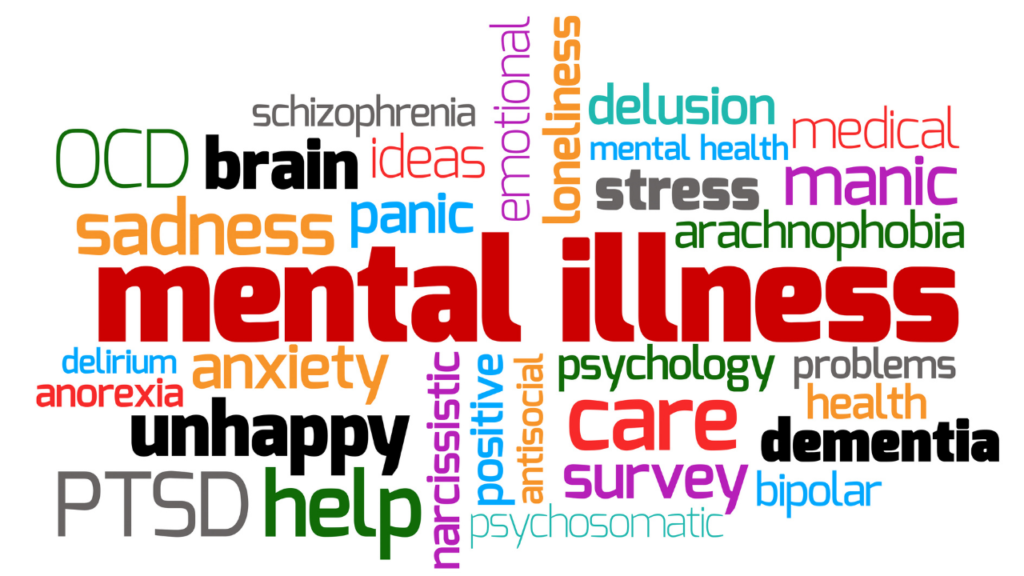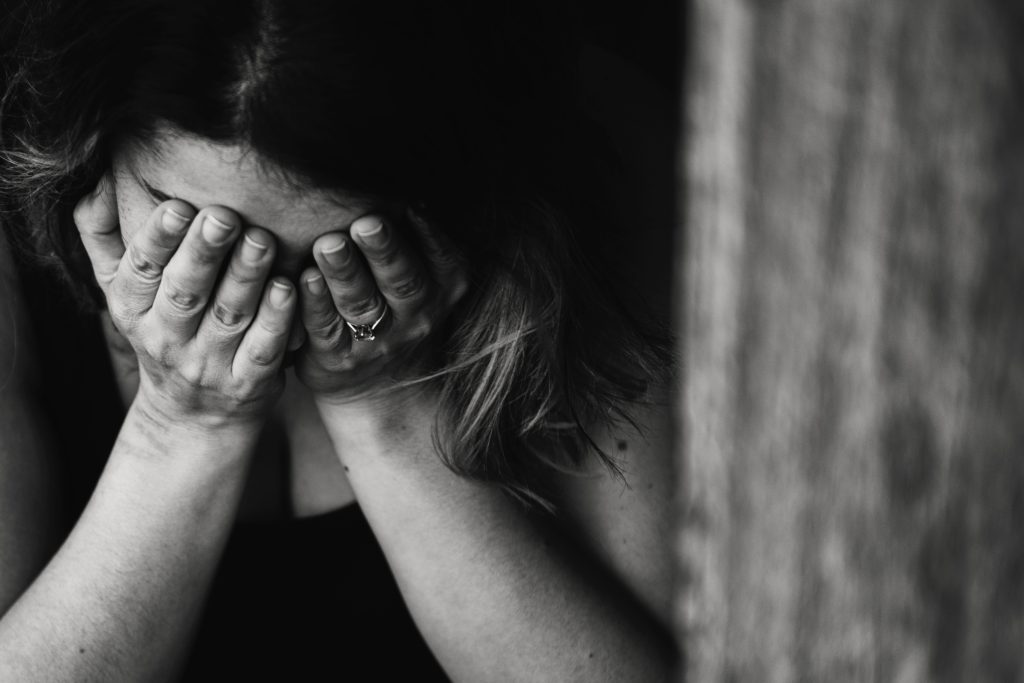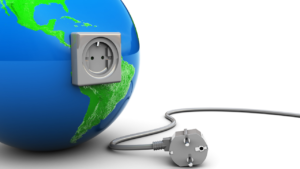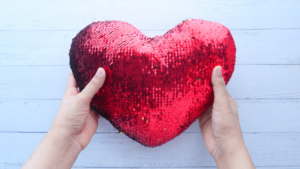
When we think about health, we tend to put emphasis on our physical health, omitting our mental health most of the time. What is mental health anyways? Mental health involves our emotional, psychological, and social well-being, which means that it determines how we deal with stress, relate to others, and our decision making. Because of the word “health”, it implies that there is mental illness. And what is mental illness?

The American Psychiatric Association defines mental illnesses as “health conditions involving changes in emotion, thinking or behavior (or a combination of these).
There is a plurality of mental disorder types including eating disorders, post-traumatic stress disorder (PTSD), personality disorder, anxiety disorders, which also includes phobias, panic disorder, obsessive-compulsive disorder (OCD), depression, including bipolar disorder and other mood disorders, and so on. In this post, I am going to focus on depression and PTSD as these are the two that I am familiar with for living with both.
What Is Depression?
In a nutshell, depression, also called major depressive disorder, is a serious medical illness that negatively affects the way you feel, think, and act.

For years, I knew that something was wrong with me, that I was broken in some ways. I have felt a lot of pain and sadness for most of my life. People know me as a very happy, smiling bubbly butterfly, but they don’t know that inside it is all darkness and moodiness at times. The way I grew up did not help very much, as I was sent to live with other people than my parents from age 8. The reasons behind sending me away and that soon is a discussion for another time, but it was never because my parents did not love me or want me as I came to believe for a while all the while trying to understand why they would send me away in the first place and to people who would treat me in any possible ways but as the child that I was, or even a person at times. Growing up I would go through physical, verbal, sexual, and emotional abuses. I was also made to think that all of it was normal until I learned that none of it was.
My Diagnosis
I carried my pain around for years trying to heal the scars that I was covered with. I also started to research about mental illness because I was also starting to believe that I was crazy, and that nothing happened to me. Part of me was convincing me that I grew up like everybody else, in a loving environment, and that I was just dramatizing normal events that we all go through as we mature.
The other part of me told me that there was more to it than met the eye, and I should start looking into it. I listened to that part and started looking up stuffs like, “how do you know if you are crazy?”, “how to know someone is crazy?”, “am I crazy?”, and so on. My findings all led me to mental health resources, and I would binge on as much content as I could in an effort to understand the subject and also myself. A lot of what I was reading hit home for me.


One day I took a deep breath, and sought professional help. It was a bold step given that in the Black community, mental illness is still unfortunately seen as “the White-Man disease”, a disease that does not affect Black people, a taboo. You just don’t talk about it.
If you are a man dealing with mental illness, you are seen and labeled as weak. If you are a woman dealing with mental illness, then you are seen and labeled as emotional, moody, and dramatic.
I sought professional help, and a few weeks later I was diagnosed with Depression and PTSD. This was in 2016.
The Suicide Attempts
2016 was a very dark year for me. This was the year when I had to leave all my friends behind in Melbourne, FL, to go to Greensboro, NC, where I had just received an engineering job. I had graduated from college with two engineering degrees and it was time to jump into the corporate world and apply what I had learned and was going to learn along the way. I also had to leave behind a romantic relationship that was burgeoning.

Here I was in North Carolina, all alone, in a job that had taken so much from me before I even started it and was taking more from me again because of the schedule that I was assigned to. Second shift with over 60 hours including weekends. Where was I going to find time to make new friends?

I felt helpless and hopeless, and that is also when I decided that I was going to end it all and stop the suffering.
One day in February, my mind was made up to jump off the roof of one of the buildings at the company that I was working at.
I did not jump. The door to the roof, left to automatically close after two maintenance men had gone to the roof, closed before I could reach it. I was so close, yet not close enough. When that door closed with my fingers a few inches away was when I came back to this reality, facing what I was going to do just a few seconds prior, and I broke down.
As time went by, I made some friends in my new workplace, and started a romantic relationship, which abruptly ended, taking with it those that I thought were my friends, too. Here I was all alone again, and that was devastating. A month after that in August, I started therapy, where I was diagnosed with depression and PTSD. I was so far deep in those disorders, too, which also meant that I was looking at a lengthy healing process.

I was doing okay with therapy until I was not. A few months after starting therapy, I had another episode. Here I was in my darkest times again, feeling unworthy, alone, and lonely. I was in so much pain, and the only way to stop the hurt, as I thought at the time, was to end my life.

In October of 2016, I was going to drive off a bridge in the middle of the night. I did try, but the vehicle immediately stopped. This was devine intervention, and I tell that entire story here.
At that moment, again, I was faced with the reality of what I was about to do, and I cried behind the wheel for a good while.
How I Deal With Depression
We live in a digitalized world and with the COVID-19 pandemic, things are not better. Many of us spend most of our time indoors interacting with others via the internet, and that is what I do as well. Some of the ways that I deal with depression include the following:
- I pay attention to my thoughts. This allows me to recognize negative thoughts so I can be better equipped to deal with them when they arise. It also allows me to learn my triggers so that I can stay away from them or cope better when they arise.


- I take deep breaths. Doing so allows me not only to calm down, but also to release any negative emotions or feelings that I may be holding onto.
- I socialize as best as I can. I reach out to friends and family. They are physically far away but the internet makes it feel like they are closer. Doing so also allows me to build a strong support system.


- I cry. Many people think that crying is a sign of weakness, but I do not believe so. I believe that those who cry are among the strongest people among us. Also, crying is a form of cleansing as by doing so you are releasing all the things that you may be holding inside. So, I cry. You know, that big ugly cry that ends up with laughter because you think of how ugly you might look now. I have come to realize that this only happens when you have released it all and there is nothing left that you are holding inside. That laughter is freedom.
- I go for a walk. When the weather allows it, I go for a walk in the nature. Sometimes, I take a drive to my favorite garden to walk there, or the mountains to hike. Sometimes, the walk happens on a treadmill while I play something from YouTube or Netflix on my phone, or just listen to some music as I walk. Regardless of how I choose to walk, it is therapeutic. Plus, I also get some workout done. So, it is a double win.


- I sleep it off. I have found that sometimes it is just best to sleep. Sometimes it works, and sometimes I need to do more than just sleep and add any of the above-mentioned ways.
- I unplug from the world. At times it is just best to turn off all electronics and retire from the world. This is when I spend time with myself and myself only. Doing so allows me to recharge before I can return to normal operation.

There are so many more ways to deal with depression and PTSD, but these are the ones that I turn to the most. I am not cured yet, but I am definitely doing better than I did in 2016 for instance. I still have episodes sometimes, but they last less than they used to, and with the right support, they are more manageable. I am an independent woman, but in those moments I become dependent, looking for a rock to hold onto as I go through the episodes. It is not pretty, and it is very exhausting. That is why a strong support system is a must, and lately I had the hard realization that not everyone can be that rock, as I was abandoned in a moment that I needed my support the most. They just turned their backs on me as I was crying for help. I was not family but rather expendable.
If you are dealing with mental illness, please, know that you are not alone. Reach out and make sure you are reaching out to the right people. If you do not have professional help, reach out to the following:
- For life-threatening situations, call 911 for immediate assistance.
- If you or someone you know has suicidal thoughts, contact the National Suicide Prevention Lifeline at 1-800-273-TALK (8255).
- For mental health referral, call the SAMHSA Treatment Referral Helpline at 1-877-SAMHSA7 (1-877-726-4727).
I try to remind myself that I am not my illnesses. Depression and PTSD were my diagnosis, not my identification. Both diseases have an impact on the way I feel, think, and act, but I have also learned to have compassion and kindness for myself.

Because of both illnesses, I have hurt the people that I love in ways that I never thought I ever would. But I have also learned to forgive myself because when my episodes hit, it is no longer me acting but my illnesses. This is not to reject responsibility. I do take responsibility for my actions even when it is Depression and/or PTSD acting and/or talking. I also work on developing more awareness and acceptance of the illnesses and myself.
If you enjoyed this post, drop me a line in the comments below. That’s how we can keep the conversation going.


Thanks for sharing, I hope tomorrow will be a brighter day
Thank you very much, Johanna! That is all I wish for always, for tomorrow to always be a better and brighter day. 🙂
Pingback: The Face of Depression – Beasts Train Mean, LLC.